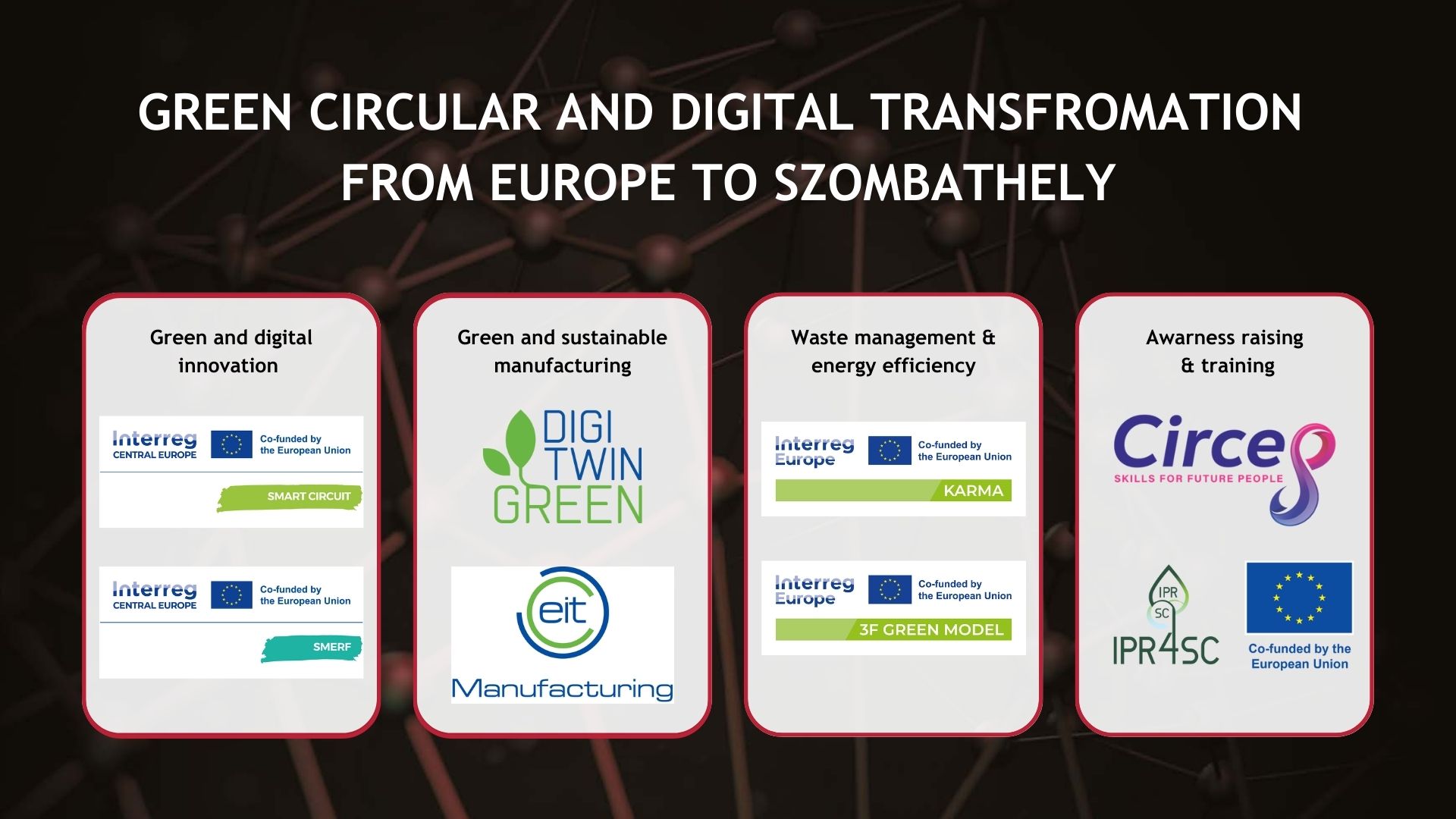Radically new knowledge, explosive changes are a huge challenge to track, interpret, translate into concrete actions and competitive advantage. The aim of PBN is to be in constant contact with the innovators at European level and to bring as many new impulses, ideas and developments as possible to Vas County.
The question is how to "bring" the need, content and potential of novelty to us. To this end, we engage in complex learning processes, conducting research in relevant fields. We also organise professional trips to all developed and developing regions of Europe, on average 20-30 times a year. Our team is accompanied by company executives and policy makers. We then organise forums, programs and presentations for a professional audience, and use the new information to develop modified calls for proposals, innovative business practices, innovative learning materials, development concepts and, ideally, investments. In the circular economy, a key area for digital and green twin-transformation in Europe, we are implementing programs in a similar way through a number of projects.
Active businesses in Central Europe are facing similar challenges, which is why it is particularly important for companies and professionals in the region to learn together. Global trends need to be translated into the local operating environment; it is not possible to succeed by simply copying. This is the purpose of the creation of Central European working groups in the areas of circular economy and manufacturing digitalisation. Joint work involves analysing literature, studying international trends and learning from good practices. In all cases, the aim is to achieve practice-oriented results that are tangible for enterprises, such as a jointly developed self-assessment tool for entrepreneurs.
(SMERF, SmartCircuit)
In manufacturing, the circular economy is manifested in a variety of innovative ways. One form is achieving zero waste in production. In a European collaboration, PBN has developed a demonstration workstation that spectacularly separates the product variation that is not properly assembled in production into raw materials and then automatically feeds it back into the first stage of production. The solution is supported by a so-called digital twin application, which allows simulations, on the other hand, it also incorporates a solar power supply.
(DigiTwinGreen)
Significant reductions in environmental pressures can be achieved in the supply chain by optimising transport distances, minimising inventories, taking advantage of proximity to customers and coordinating capacities. All this contributes to reducing emissions. In practice, this is achieved through coordination between different production points, known in the literature as the distributed factory model. To train and research this, a prototype has been developed in Szombathely by PBN in partnership with Portuguese, Czech and Austrian partners. A platform, an architecture is created that can provide distributed manufacturing between production lines in an autonomous way with direct producer data access.
(ConFacts)
A prerequisite for the success of the circular economy is that the first step is to recycle the product and create minimal waste. This is called circular design. PBN is working with international partners to produce a curriculum for secondary school students on this design approach. The end result is an online curriculum, developed in European cooperation, that will provide internationally competitive knowledge for future generations. The drastic reduction of emissions in the production of construction materials, digitalisation and intelligent modelling in the construction industry, and the use of green materials are all dynamically emerging topics. PBN is focusing in an international partnership on how to recycle building material scrap, especially for wood-based elements - interior doors, windows, doorsills, cladding, etc. Ideally, a recycling point will be established, in a city partnership.
(Circes, KARMA)
Biodegradable materials are an important potential source of energy. They can be plant or animal residues, waste water, many other sources. The international consortium is focusing on the recycling of wood waste as an energy source. Through study tours and demonstrations, the aim is to create a new wood recovery solution in Szombathely.
(3F GREEN MODEL)
We cannot talk about value creation and innovation without raising awareness of the importance, role and value of intellectual property rights. An average Czech or Polish company is worth 3-4 times as much as a Hungarian company just because of their conscious focus on IPR and value. The advent of artificial intelligence has further increased not only the importance of this area, but also its complexity. Not only legislators but also businesses need to be properly prepared. This is why the PBN organises training courses in international cooperation to promote this area.
(IPR4SC)



